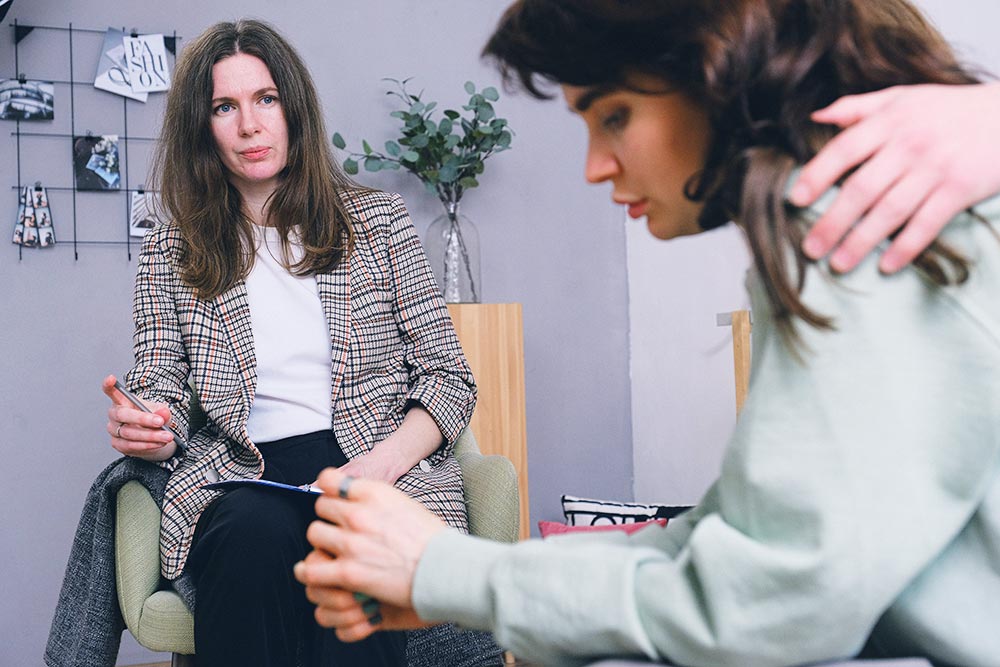Gratitude is something that you normally hear a lot in Addiction recovery. That’s true in behavioral treatment, in complementary treatment, and in self-help groups like AA and NA. Everyone wants you to practice gratitude. Even when you’re going through one of the hardest times of your life and you’re struggling to stay clean and sober. Why is that? Why should you be feeling gratitude?
The thing is, practicing gratitude means changing your mindset. It means approaching life as something that isn’t always just about you. And it’s about seeing the work and input other people have had and therefore how much you matter. The following reasons to practice gratitude are just some of the many ways that practicing gratitude can help you in your recovery.
You’ll Feel Better
Most research consistently shows that when you take time to be grateful, it makes you feel better about where you are and what you have. Focusing on gratitude and things you’re grateful for also means you’re focusing on good things and that can be a powerful influence on your mindset and overall wellbeing. One study by Clinical Psychology showed that gratitude could help people to be less stressed, to reduce overall negative emotions, and to improve self-scoring on happiness. Of course, practicing gratitude isn’t a silver bullet to feeling bad. However, the act of practicing gratitude, of taking time to acknowledge when people put in effort for you, to be grateful for the chances you have, and to be grateful that you were able to come so far is still and important part of your recovery and getting to feel good about that.
Gratitude Improves Your Rest
In one study, people who practiced gratitude on a regular basis were shown to be better at resting, better at feeling rested, and better at sleeping. People in the study who scored better for being able to express and feel gratitude also scored better as sleepers, reported feeling more rested after naps and rest periods, and were less tired through the day. Of course, the same can be in reverse. Having better sleep can improve your mood regulation and therefore your ability to be and to feel rested. Taking care of your physical health makes it easier for you to manage your emotions and to consider the good things. However, developing a mindset and a habit of thinking about good things and being grateful for them can also improve how you sleep.

Gratitude Improves Energy Levels
If you’re aware of the things you have going for you, aware of the people helping you, and invested in being thankful and reciprocal about the things that you get in your life, you’ll have more energy, alertness, and motivation. One study showed that people who are grateful for opportunities and progress have more alertness, attention, and focus. That, in turn, makes it easier to reach and maintain goals, so you’re more likely to succeed in your recovery journey.
Again, it’s not a fix for attention issues. However, taking the time to practice gratefulness can remind you of just exactly what it is you’re fighting for, and that can be extremely motivating and inspiring.
Get Your Questions Answered Now
You’ll Improve Your Self Esteem

Practicing gratitude means being aware of good things, recognizing that work has gone into them, recognizing when people have helped you, and being thankful that you get the opportunities. That mindset can help you to improve your self-esteem in a number of ways. First, you can focus on what you’ve done for yourself, on how far you’ve come, and on how many steps you’ve taken in the right direction. Even if things aren’t going perfectly, you can still stop and be grateful for the steps you have taken forward. You can also more likely to be able to see what people are investing for you, how people are helping you, and how people are investing in your health and wellbeing. That can help you to improve your sense of self-worth and the idea that you have value to others – although you may need therapy and help with that mindset as well.
In one study, individuals who took time to be grateful for what they had were more likely to be confident, were more likely to develop self-sufficiency, and were more likely to improve on scores of self-esteem.
You’ll Improve Relationships
If you’re grateful for what you have, you’ll show it. And that includes showing it to the people investing in you. Taking the time to be thankful and to be genuine can greatly improve your relationships with others. That’s especially true if that appreciation is ongoing and consistent. Being genuinely thankful for the things and the people in your life will spread to those people and it will improve your relationships with them. That’s important at a time when you’re likely working to fix your relationships and to build new ones.
Gratitude Improves Your Physical Health
Most people are aware that mental health affects your physical health, but did you know that positive emotions also have an impact. Taking time to cultivate a positive life outlook and to invest in gratitude can improve your health in several ways. For example, it can improve your psychological health and improve your quality of sleep. That can mean reduced fatigue, boosted immune system, and even reduced exposure to stress-related heart conditions. Of course, gratitude also means you’re more likely to be motivated for self-care like exercise, healthy meals, and rest – and that will also go on to significantly impact your health and wellbeing.
Gratitude Reduces Stress
Gratitude has been shown to reduce the symptoms of stress via a method known as “proactive coping”. Rather than reducing the amount of stress in your life, it shifts your focus to the positive aspects of stress, helps you to see bad things as situational, and helps you to experience less stress from something negative. Practicing gratitude often means taking time every day to look for positive things in your day. That can even mean looking for positives in negative situations, although that isn’t always necessary. However, it can greatly improve your outlook, how you experience stress at setbacks, and how you look at setbacks. For example, if you’re practicing gratitude and you’re acknowledging things are going well every day, it can be hard to see a setback as “everything always goes wrong”. Instead, you can step back go “I can learn from this” and work around it to keep moving forward. And that will greatly impact how you experience stress around it.

Practicing gratitude is hard work. It means continuously investing in seeing the positives. It means assessing what went well, even when you feel bad. And it means taking steps to recognize the good things you do have – and that will improve your recovery journey and how you feel around it.
Of course, practicing gratitude won’t happen immediately. Most of us struggle with it at first. Taking time to have a daily gratitude session or to write in a gratitude journal can help. However, taking time throughout the day to go “This is going well, I am grateful for it” can also be important. Good luck with your gratitude and your recovery.
If you or a loved one is seeking help for alcohol or other substance abuse, contact us at Stairway Resource Center today. At Stairway Resource Center we provide a 60 to 90-day outpatient program that takes place in an engaging and supportive community setting. We offer dual diagnosis treatment and daily group and individual therapy for our clients, in addition to fun community-based events and activities.

